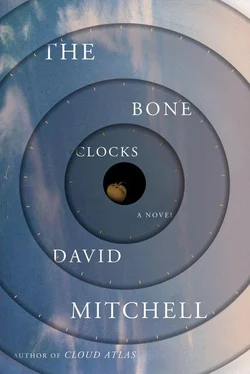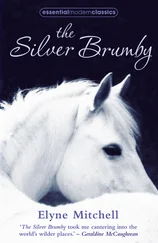“Permission to immigrate is for Miss Örvarsdottir,” Aronsson addresses me, “ only . That is not negotiable. Quotas are strict.”
“How can I leave my family behind?” Lorelei’s saying.
“It is difficult,” Lieutenant Eriksdottir tells her. “But please consider it, Lorelei. The Lease Lands have been safe, but those days are over, as you learned today. There is a broken nuclear reactor not far enough away, if the wind blows wrongly. Iceland is safe. This is why the immigration quota is so strict. We have geothermal electricity and your uncle Halgrid’s family will care for you.”
I remember Örvar’s older brother from my summer in Reykjavik. “Halgrid’s still alive?”
“Of course. Our isolation saves us from the worst”—Commander Aronsson searches for the word—“hardships of the Endarkenment.”
“There must be a lot of Icelandic nationals around the globe,” says Mo, “praying for a deus ex machina to sail up to the bottom of the garden. Why Lorelei? And why such a timely arrival?”
“Ten days ago we learned that the Pearl Occident Company was planning to withdraw from Ireland,” says the commander. “At that point, one of the president’s advisers,” Aronsson looks sideways at Harry Veracruz with something like a scowl, “persuaded our president that your granddaughter’s repatriation is a matter of national importance.”
So we look at Harry Veracruz, who must be more influential than he appears. He’s leaning on the gate like a neighbor who’s dropped by for a chat, making a what-can-I-say face. He tells me in his young voice: “Normally I’d try to prepare the ground better, Holly, but this time I lacked the opportunity. To cut a long story short, I’m Marinus.”
I’m sort of floating up, as if lifted by waves; my hands grasp the nearest things, which are the door frame and Lorelei’s elbow. I hear a sound, like the pages of a very thick book being flicked, but it’s only the wind in the shrubberies. The doctor in Gravesend; the psychiatrist in Manhattan; the voice in my head in the labyrinth that couldn’t exist, but did; and this young man watching me, from ten paces away.
Wait. How do I know? Sure Harry Veracruz looks honest, but so do all successful liars. Then I hear his voice in my head: Jacko’s labyrinth, the domed chamber, the bird shadows, the golden apple . His gaze is level and knowing. I look at the others. Nobody else heard. It’s me, Holly. Truly. Sorry for this extra shock. I know you’re having a hell of day here .
“Gran?” Lorelei sounds panicky. “You want to sit down?”
A mistlethrush is singing on my spade in the kale patch.
With effort, I shake my head. “No, I …” Then I ask him, in a croak, “Where have you been ? I thought you were dead.”
Marinus — I remember the verb—“subspeaks.” Long story. The golden apple was a one-soul escape pod, so I had to find another route and another host. It proved to be circuitous. Eight years passed here before I was resurrected in an eight-year-old in an orphanage in Cuba, neatly coinciding with the 2031 quarantine. It was 2035 before I could get off the island, when this self was ten. When finally I reached Manhattan the place was half feralized, 119A was deserted, and it took three more years to connect with the remnants of Horology. Then the Net crashes happened and tracing you became nigh-on impossible.
“What about the War?” I ask. “Did you — did we — win?”
The young man’s smile is ambivalent. Yes. One could say we won. The Anchorites no longer exist. Hugo Lamb helped me escape the Dusk, in fact, though what fate befell him I do not know. His psychodecanting days are over and his body will be middle-aged, if indeed he has survived this long.
“Holly?” Mo’s got an is-she-losing-her-marbles face. “What war?”
“This is an old friend,” I reply, “from … my, uh, author days.”
For some reason, Mo looks more worried, not less.
“The son of an old friend, Holly means, of course,” says Marinus. “My mother was a psychiatrist colleague of Holly’s, back in the day.”
Commander Aronsson receives a luckily timed message and turns away, speaking Icelandic into his headset. He checks his watch, signs off, then turns back to us: “The captain of the Sjálfstæði wants to depart in forty-five minutes. Not long for a big decision, Lorelei, but we do not wish to attract attention. Please. Discuss matters with your family. We”—he glances at Lieutenant Eriksdottir—“will check you are not disturbed.”
Voles, hens, sparrows, a dog. A garden’s full of eyes.
“You’d better come in,” I tell Harry Marinus Veracruz.
The gate squeaks as he opens it. He crosses the yard. How do you greet a resurrected Atemporal you’ve not seen for twenty years? Hug? A double-sided cheek kiss? Harry Veracruz smiles and the Marinus within subsays, Weird, I know. Welcome to my world. Or welcome back to it, albeit briefly . I stand aside to let him into the cottage, and something occurs to me. “Commander Aronsson? I have one question for you.”
“Ask it,” says Commander Aronsson.
“D’you still have insulin in Iceland?”
The man frowns, but Marinus calls over his shoulder: “It’s the same in Icelandic, Commander. Insúlín . The drug for diabetes.”
“Ah.” The officer nods. “Yes, we manufacture this drug at a new unit, near the airbase at Keflavík. Two or three thousand of our citizens require it, including our minister of defense. Why do you ask? Does your granddaughter have diabetes?”
“No,” I reply. “I was just curious.”
BACK IN OUR kitchen, I put on the solar lamp. It flickers like a candle. Dinner is almost ready, but suddenly none of us is hungry. “Gran,” says Lorelei. “I can’t go to Iceland.”
This’ll be one of the hardest sells of my life.
“You’ve got to, Lol!” says Rafiq, and I bless him. “You’ll have a good life there. Won’t she, Mr. Vera — Verac—”
Marinus is already peering at the books on the shelves. “Those whom I respect I ask to call me ‘Marinus,’ Rafiq, and, yes, your sister will enjoy an incomparably better-nourished, better-educated, and safer life than on Sheep’s Head. As today has proven, I believe.”
“Then, Lol,” Rafiq says for me, “that ship’s your lifeboat.”
“A one-way lifeboat,” Lorelei asks Marinus. “Right?”
The young man frowns. “Lifeboats don’t do return tickets.”
“Then I’m not going to sail off and leave you all here.” Lorelei sounds so like Aoife when she’s making a stand, it wakes up my old grief. “If you were in my shoes, Raf, you wouldn’t go.”
Rafiq takes a deep breath. “If you were in my shoes, you’d be diabetic in a country without insulin. Think about it.”
Lorelei looks away miserably and says nothing.
“I have a question,” Mo says, lowering herself onto a chair at the kitchen table and hooking her stick over its edge. “Three, in fact. Holly knew your mother, Mr. Marinus, which is all well and good, but why should she trust you to do the right thing by Lorelei?”
Marinus puts his hands into his pockets and rocks on his heels, like a young man with supple joints. “Professor, I can’t prove to you that I’m the trustworthy, honorable human being that I claim to be, not in forty minutes. I can only refer you to Holly Sykes.”
“It’s a long, long story,” I tell Mo, “but Marinus — or his mother, I mean, it’s complicated, she saved my life.”
“There’s a Marinus in The Radio People ,” says Mo, the careful and retentive reader, “who plays quite a major role. The doctor in Gravesend.” Mo looks at me. “Any relative?”
Читать дальше












